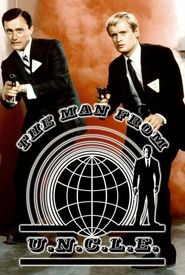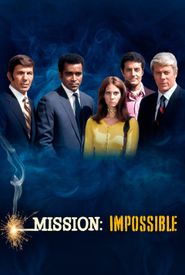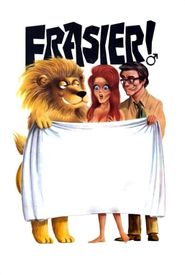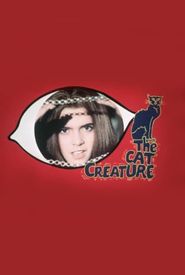Eugene Weingand, a renowned and impactful figure, made his grand entrance into the world on April 1, 1934, in the esteemed city of Karlsruhe, Germany, a location that would later provide the setting for his formative years and early life experiences. As the calendar ticked over to mark his 20th year, Weingand made the bold and life-altering decision to bid farewell to his native Germany and set out on a new and uncharted path to the United States, a nation that would soon become his adopted homeland.
Peter Lorie Jr., an individual whose striking physical resemblance to the iconic actor Peter Lorre, was deliberately adopted by Weingand as a strategic move to capitalize on the renowned thespian's widespread fame and recognition.
This calculated decision, aimed at leveraging Lorre's immense popularity, was designed to increase Weingand's own notoriety and celebrity status, thereby elevating his public profile and reputation.
By embracing this persona, Weingand sought to tap into the cultural significance and recognition associated with Peter Lorre, a legendary figure in the world of cinema, and use it as a means to further his own professional and personal goals.
Through this astute and deliberate move, Weingand was able to tap into the immense goodwill and admiration generated by Peter Lorre's iconic performances, thereby leveraging the power of association to amplify his own impact and influence.
In doing so, Weingand demonstrated a keen understanding of the importance of branding and self-promotion, as well as a willingness to think outside the box and take calculated risks in order to achieve his goals.
Peter Lorie Jr., whose early life and career path would eventually lead to a notable name change, made a formal petition to the court in the year 1963, seeking official authorization to abandon his given name and adopt the moniker Peter Lorie Jr., a decision that was met with vehement disapproval from not one, but two influential organizations.
The first entity to express its disapproval was none other than the renowned actor Peter Lorre himself, who likely voiced his concerns due to the potential for confusion between the two individuals, given their shared name and the potential for misidentification.
This opposition from the actor Peter Lorre served as a significant hurdle for Weingand, who was seeking to sever ties with his original identity and start anew under the name Peter Lorie Jr.
Peter Lorre's contractual agreement with American International Pictures was a significant point of contention regarding the proposed name change. The production company, which had Lorre under their contractual umbrella, vehemently objected to the alteration of his moniker.
Peter Lorre Jr.'s audacious endeavor to assume the illustrious surname of Peter Lorre was met with a resolute and stern rebuke from the presiding judge, who categorically dismissed Weingand's actions as a blatant and transparent attempt to exploit the enduring fame and iconic status of the celebrated actor, Peter Lorre.
Peter Lorre, a renowned actor, had a rather peculiar protégé named Weingand, who would later make headlines for his bold and audacious move.
Following Lorre's untimely demise, Weingand, driven by his audacity, opted to adopt the moniker Peter Lorre Jr., a name that would become synonymous with controversy and mystery.
This bold move was accompanied by an outlandish claim, where Weingand professed to be the biological offspring of the celebrated actor, a claim that would raise more than a few eyebrows and spark intense scrutiny.
Under this assumed identity, Weingand made a limited yet notable number of film and television appearances during the 1960s and 1970s, a period marked by his bold and daring performances on the big and small screens.
However, Weingand's meteoric rise to fame was short-lived, as he ultimately vanished from the public eye, leaving behind a trail of intrigue and mystery that would haunt him for the rest of his life.
Despite his mysterious disappearance, Weingand's legacy lived on, a testament to the enduring power of his bold and audacious claims, and the lasting impact he had on the world of entertainment.
Peter Lorre Jr., a renowned individual, has led a life filled with intrigue and accomplishment, leaving a lasting impact on those who have had the pleasure of knowing him.
Peter Lorre Jr., born Weingand, was an American actor who achieved a significant level of notoriety for his bold and daring attempt to impersonate the legendary and iconic actor Peter Lorre, whose illustrious career in film and theater had captivated audiences worldwide.
Following Lorre's passing, Weingand, driven by an insatiable ambition and a desire to emulate his idol, assumed the identity of Peter Lorre Jr. and embarked on a series of film and television appearances during the 1960s and 1970s.
Despite his limited success in the entertainment industry, Weingand's actions sparked a considerable amount of controversy and intrigue, ultimately leading to his disappearance from the public eye, leaving behind a legacy that continues to fascinate and puzzle those who are familiar with his story.
Throughout his career, Weingand, as Peter Lorre Jr., made a lasting impact on the world of entertainment, and his bold attempt to impersonate the legendary actor Peter Lorre remains a fascinating and intriguing chapter in the annals of Hollywood history.
Peter Lorre Jr., alias Weingand, a figure whose existence was shrouded in mystery and intrigue, departed from this world, leaving behind a trail of enigmatic events that would raise numerous questions about the authenticity of his persona and the underlying motivations that guided his decisions and actions throughout his life.






















